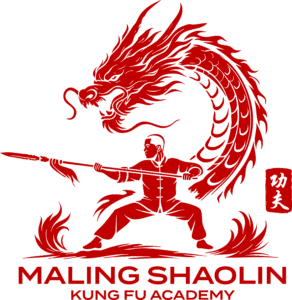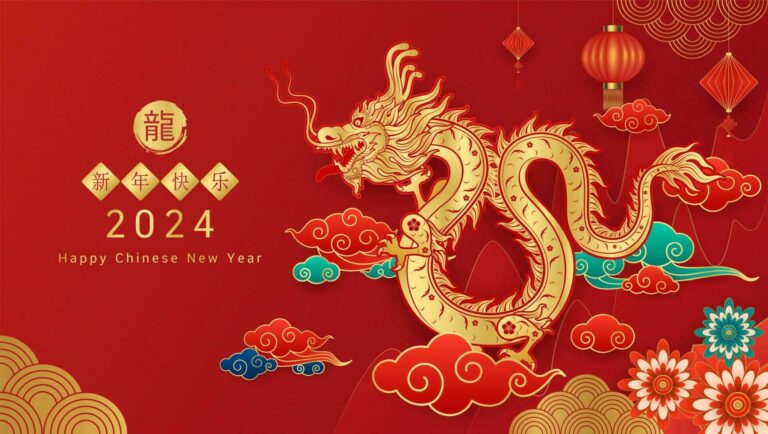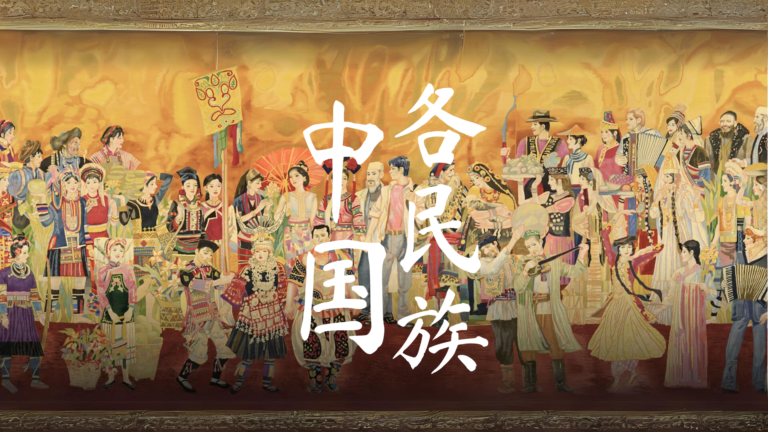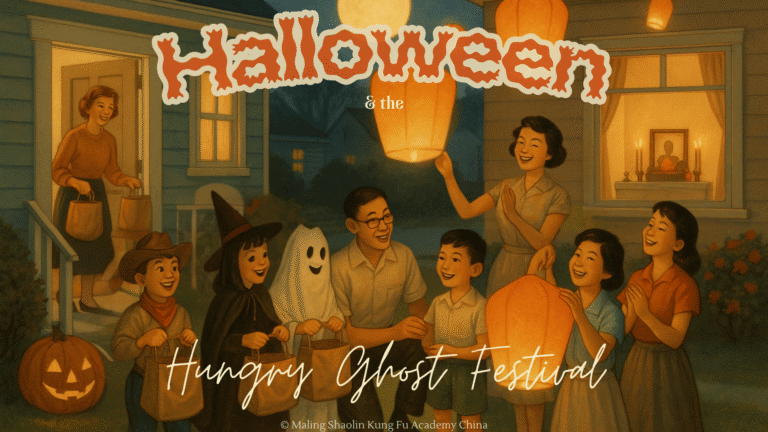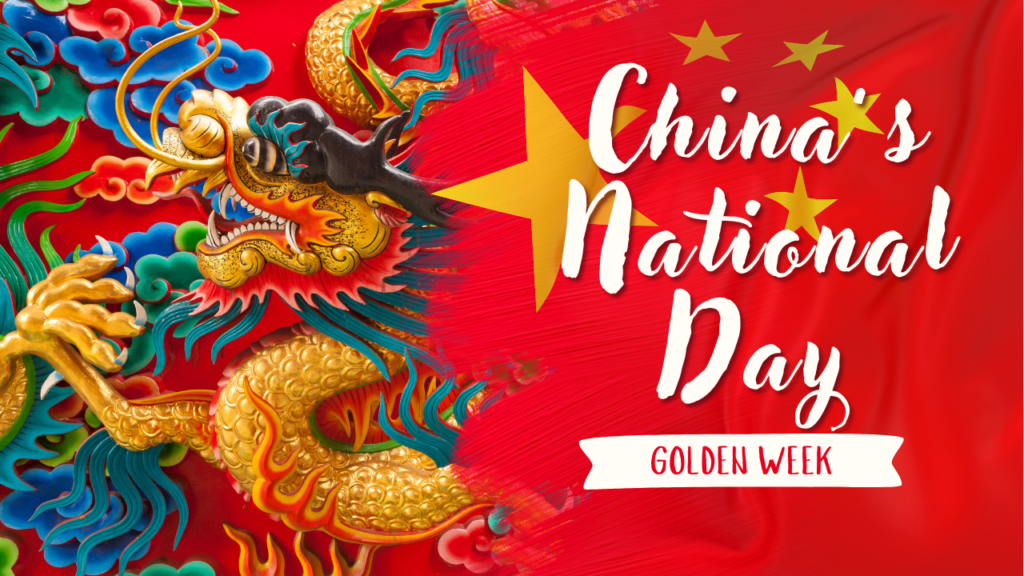
Chinese National Day, observed on October 1st, is one of the most significant holidays in China, marking the founding of the People’s Republic of China in 1949. It’s not just a day of national pride but also the beginning of the Golden Week (黄金周), a seven-day public holiday that gives people across the country a chance to celebrate, travel, and engage in various festivities. Let’s dive into the history, traditions, and the modern-day significance of this monumental event.
Historical Background
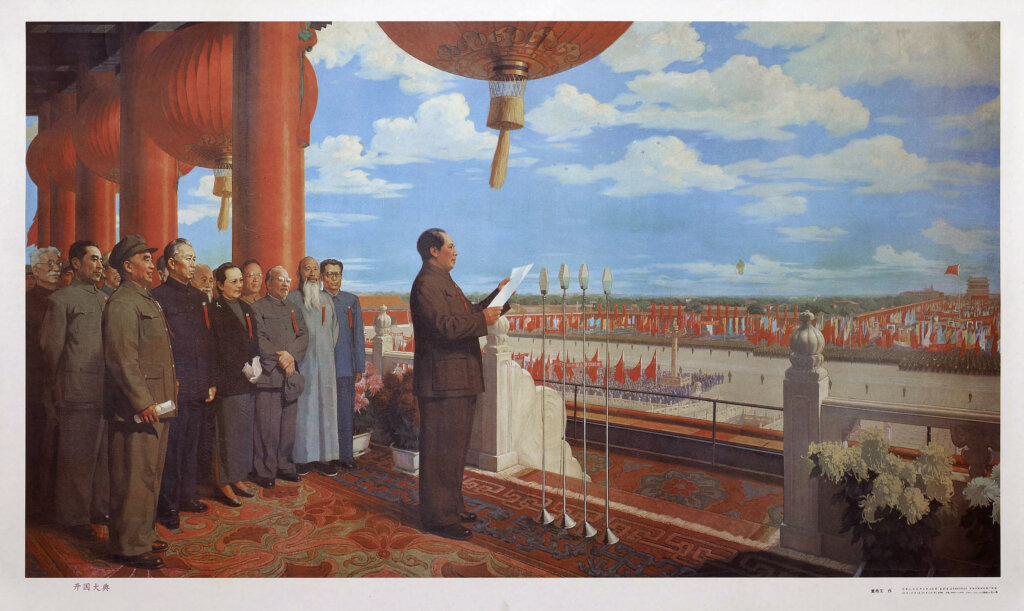
Chinese National Day commemorates the formal establishment of the People’s Republic of China (PRC) on October 1, 1949, following the victory of the Communist Party of China over the Kuomintang in the Chinese Civil War. The founding ceremony was held in Beijing’s Tiananmen Square, with Chairman Mao Zedong proclaiming the birth of the PRC in front of thousands of citizens. Since then, October 1st has been a symbol of unity and national pride for the people of China.
Golden Week and Its Economic Impact
The Golden Week (黄金周) holiday was introduced in 1999 to promote domestic tourism and spending. This extended public holiday allows millions of people to travel, shop, and spend time with their families. The holiday is one of the busiest travel periods of the year, with both domestic and international destinations experiencing a surge in tourists.
- Tourism: Popular destinations like the Great Wall, the Forbidden City, and the Terracotta Warriors see a massive influx of visitors during this period. Less crowded destinations, including rural and ethnic minority areas, are becoming increasingly popular among travelers.
- Consumer Spending: Hotels, restaurants, and shopping centers experience a huge boost, as Golden Week is seen as a time for family vacations, retail splurges, and leisure activities.
National Day Celebrations

The festivities for Chinese National Day are elaborate, with celebrations held nationwide, but particularly grand in the capital city of Beijing. Some of the most notable aspects of the celebration include:
- Flag-Raising Ceremony: In Tiananmen Square, a solemn flag-raising ceremony is held at dawn, attended by large crowds of citizens and tourists. This tradition has become a symbol of national pride, and the event is broadcast live across the country.
- Military Parades: Though not held annually, large military parades are a significant part of National Day celebrations in special years, such as the 10th, 50th, and 70th anniversaries. These parades showcase China’s military strength, technological advancements, and national unity.
- Fireworks and Light Shows: Fireworks light up the skies across major cities, creating spectacular displays that symbolize prosperity and happiness. Some cities, like Shanghai and Shenzhen, also host light shows, projecting vivid imagery on skyscrapers and along riversides, adding a modern touch to the celebrations.
- Public Performances: Cultural performances, including traditional Chinese music, dance, and opera, are held in public squares and parks. These performances reflect the richness of China’s cultural heritage and offer entertainment for all ages.
Contemporary Observations
While National Day and Golden Week are often joyous and celebratory, the massive crowds and travel rush during this period have led to issues such as overcrowding at popular tourist destinations. However, for many Chinese citizens, Golden Week remains a highly anticipated period to reconnect with family, explore the country, and celebrate the achievements of the PRC.
In recent years, the Chinese government has continued to promote the importance of cultural preservation during Golden Week, encouraging people to engage with traditional Chinese culture, visit historical sites, and participate in cultural festivals.
What Does Golden Week Mean?

If you have kept up to date with or perused our blog you may recall seeing a post about a Golden Week holiday in May as well. In China, Labor Day, celebrated on May 1st, was traditionally part of a holiday period known as the May Day Golden Week. This term refers to the extended holiday that allows workers to have a break, similar to the Golden Week during National Day in October.
The term Golden Week signifies a week-long holiday where people are encouraged to travel and participate in leisure activities. In the past, this period was typically extended to allow for longer vacations, making it a popular time for domestic tourism. However, in recent years, the length of the May Day holiday has varied, and while it’s still a time for travel and celebration, it may not always extend to a full week. However, its October counterpart still holds true to the week-long tradition.
The name Golden Week reflects the economic significance of these holidays, as they stimulate tourism, retail, and various industries through increased consumer spending and travel.
Conclusion
Chinese National Day and Golden Week are not only about celebrating the country’s founding but also about reflecting on China’s progress, unity, and culture. The week-long holiday provides an opportunity for millions of citizens to travel, explore, and contribute to the nation’s economy, all while taking part in festivities that honor the country’s rich history and achievements.
